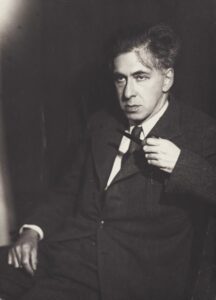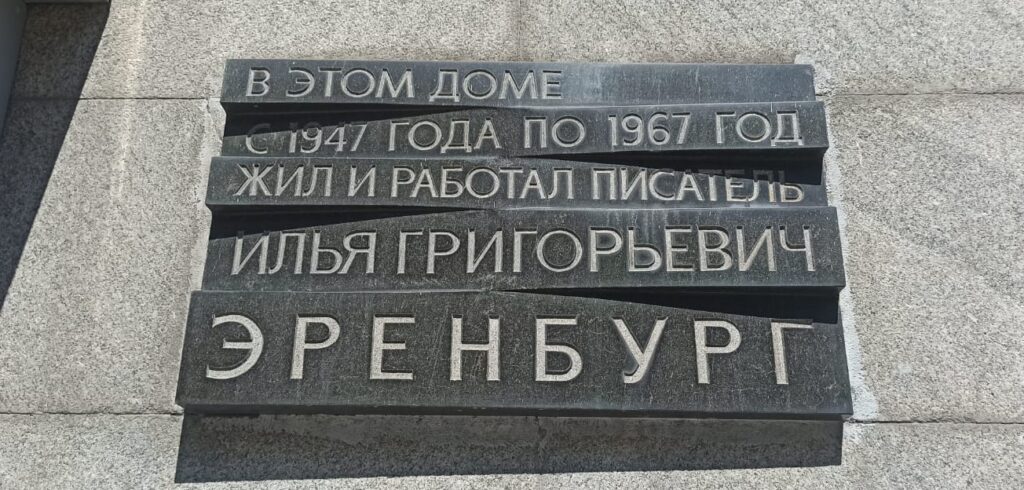Ilya Grigorievich
Ehrenburg
1891-1967

Ilya Grigoryevich Ehrenburg was a famous anti-fascist writer, poet, one of the most famous wartime publicists. He was the author of the story Thaw, which title is synonymous with an entire period of Soviet history. He spent about twenty years in exile, having returned to Russia only when World War II broke out. In 1908 he was arrested for underground revolutionary activities. He emigrated to France. He moved in a circle of cultural, artistic and political figures, including Vladimir Ulyanov, and engaged in literary activities in Paris. He criticized the Bolshevik movement in his works on socio-political issues. In the early 1920s, Ilya Grigorievich worked as a correspondent for the Izvestia newspaper. His journalistic articles with bright slogans became a powerful tool of Soviet propaganda in Europe. Several years later, the writer returned to his homeland, where he began to find inspiration by traveling through the Russian hinterlands. During the World War II, he was a correspondent for the newspaper Krasnaya Zvezda, wrote for other newspapers and for the Sovinformburo. In 1942, he joined the Jewish Anti-Fascist Committee and was active in collecting and publishing materials about the Holocaust. Together with Vasily Grossman, he coordinated the compilation of a Black Book documenting the Holocaust. Ehrenburg is known as the author of the first use of the phrase “Victory Day” in Russian literature. Together with the poet Konstantin Simonov, he created the famous slogan “Kill the German!”, which boosted the morale of the Red Army. The author published two other works, which became one of the most important in his creative biography, at the end of the war: The Ninth Wave and The Storm. The last essay brought Ehrenburg All-Union fame and the highest state award in the field of literature—the Stalin Prize. In 1954, he published the novel Thaw, which gave its name to an entire era of Soviet history.
Address: Moscow, Tverskaya str., 8, bldg. 1

